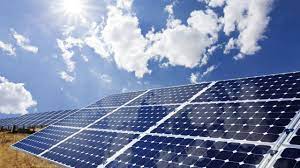By Ogenyi Ogenyi, Uyo
The Country Manager, Natural Justice, Nigeria, Mr Michael Keania Karikpo, has said energy access remained a major issue in Nigeria and Africa, noting that the gap can be bridged if the constitutional amendments could guarantee states the powers to generate, transmit and distribute electricity.
He said that (Natural Justice) Environmental lawyers Collective is focused on driving the process by ensuring that the gaps and the incoherences in the implementation of constitutional amendments are nipped in the bud.
Karikpo stated this in Uyo while speaking with journalists on the sidelines of the inaugural meeting of the Nigeria Environmental Lawyers Collective.
Explaining the focus of the meeting, Karikpo said “the issue of energy access has been a major issue in Nigeria and Africa. Today, close to 800m Africans don’t have access to energy.How do we bridge the access gap and get energy for development in our communities/
“We have been been looking at how to push this process forward. Until we have the constitutional amendments that give States the power to generate, transmit and distribute electricity.
“So, now we are trying to ensure that all the gaps and incoherences that are becoming apparent in the implementation of the constitutional amendments are nipped in the bud right now before they become institutionalized.
“That way we can create a clear plaform or process of development that attracts investment, not just investment in fossil fuels but investment in renewable energy that can serve our communities.” Je explained.
He regretted that Africa has continued to lag behind with the transition from fossil to renewable energy, adding that despite the abundance natural resources which accounts for 70% of what the world has, Africa remained the poorest continent.
According to him,”in the last Cap. It was clearly stated that the period of for fossils is over and thus the process has now been put in place to move from fossil to renewable energy and for us Nigeria, especially Nigeria we are still way back. We have the most important natural resources around the World.
“70% of the natural resources that the world has are in Africa, and yet we are the poorest continent. 60-70 of the sun that shines in Africa does not shine in Europe and America but Germany has close to 40,000 megawatt of electricity on roof top solar.
“It does not have the same radiation that we have but more megawatt of electricity which is like 10 times the 4,000 megawatt we have in Nigeria, when you think about we are left behind and we have the resources to lift frog what Germany is doing and that is our driving force.” He said.
Earlier in a remark, Akwa Ibom State Commissioner for Power, Engr Camillus Umoh lauded the Electricity Act of 2023, describing it as innovative and creative as it would increase energy access, reduce over dependence on the national grid and provide for unserved and under served areas in the state by an intentional Government focus.
Umoh pointed out that with the problems posed by climate change, it has become imperative to reduce the use of fossil fuel as base sources for generating power and a corresponding demand for renewable energy sources
“The state bill under development, encouraages the development and use of renewables with a planned incentive support plan, administrative modalities are being worked. The bill encourages power generation companies to invest in renewable energy projects, thereby diversifying Nigeria’s energy mix/blend, reducing the carbon footprint whilst earning carbon credit, of well managed and.documented.
“Leveraging on the evidenced gaps in the existing DISCOS, the state electricity bill is timely with lots of lessons learnt from the market. Our bill enactment process will include a stakeholder roundtable review and a public hearing. As a state, we are on course with respect to the enabling state legislation for power, replicating best practices from others and knowing that we are blessed with abundant energy sources.
“It is my belief that that at the end of this inaugural meeting, the intent of the Nigerian Environmental Lawyers Collective especially in designing the structure and processes for smooth working relationships amongst the stakeholders to support, protect and defend our environment and communities would be achieved.” He said.

Leave a Reply